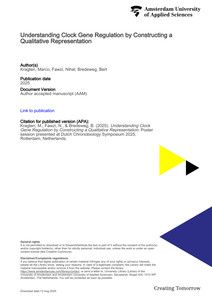Neighborhood image processing operations on Field Programmable Gate Array (FPGA) are considered as memory intensive operations. A large memory bandwidth is required to transfer the required pixel data from external memory to the processing unit. On-chip image buffers are employed to reduce this data transfer rate. Conventional image buffers, implemented either by using FPGA logic resources or embedded memories are resource inefficient. They exhaust the limited FPGA resources quickly. Consequently, hardware implementation of neighborhood operations becomes expensive, and integrating them in resource constrained devices becomes unfeasible. This paper presents a resource efficient FPGA based on-chip buffer architecture. The proposed architecture utilizes full capacity of a single Xilinx BlockRAM (BRAM36 primitive) for storing multiple rows of input image. To get multiple pixels/clock in a user defined scan order, an efficient duty-cycle based memory accessing technique is coupled with a customized addressing circuitry. This accessing technique exploits switching capabilities of BRAM to read 4 pixels in a single clock cycle without degrading system frequency. The addressing circuitry provides multiple pixels/clock in any user defined scan order to implement a wide range of neighborhood operations. With the saving of 83% BRAM resources, the buffer architecture operates at 278 MHz on Xilinx Artix-7 FPGA with an efficiency of 1.3 clock/pixel. It is thus capable to fulfill real time image processing requirements for HD image resolution (1080 × 1920) @103 fcps.
DOCUMENT

Purpose: To examine the effects of different small-sided games (SSGs) on physical and technical aspects of performance in wheelchair basketball (WB) players. Design: Observational cohort study. Methods: Fifteen highly trained WB players participated in a single 5v5 (24-s shot clock) match and three 3v3 SSGs (18-s shot clock) on a (1) full court, (2) half-court, and (3) modified-length court. During all formats, players’ activity profiles were monitored using an indoor tracking system and inertial measurement units. Physiological responses were monitored via heart rate and rating of perceived exertion. Technical performance, that is, ball handling, was monitored using video analysis. Repeated-measures analysis of variance and effect sizes (ESs) were calculated to determine the statistical significance and magnitude of any differences between game formats. Results: Players covered less distance and reached lower peak speeds during half-court (P ≤ .0005; ES ≥ very large) compared with all other formats. Greater distances were covered, and more time was spent performing moderate- and high-speed activity (P ≤ .008; ES ≥ moderate) during full court compared with all other formats. Game format had little bearing on physiological responses, and the only differences in technical performance observed were in relation to 5v5. Players spent more time in possession, took more shots, and performed more rebounds in all 3v3 formats compared with 5v5 (P ≤ .028; ES ≥ moderate). Conclusions: Court dimensions affect the activity profiles of WB players during 3v3 SSGs yet had little bearing on technical performance when time pressures (shot clocks) were constant. These findings have important implications for coaches to understand which SSG format may be most suitable for physically and technically preparing WB players. DOI: https://doi.org/10.1123/ijspp.2017-0500 LinkedIn: https://www.linkedin.com/in/rienkvdslikke/ https://www.linkedin.com/in/moniqueberger/
MULTIFILE

We developed a lesson where students construct a qualitative representation to learn how clock genes are regulated. Qualitative representations provide a non-numerical description of system behavior, focusing on causal relation-ships and system states. They align with human reasoning about system dy-namics and serve as valuable learning tools for understanding both domain-specific systems and developing broader systems thinking skills.The lesson, designed for upper secondary and higher education, is imple-mented in the DynaLearn software at Level 4, where students can model feedback loops. Students construct the representation step by step, guided by a structured workbook and built-in support functions within the software. At each step, they run simulations to examine system behavior and reflect on the results through workbook questions. To ensure scientific accuracy, the representation and workbook were evaluated by domain experts.The lesson begins with modeling how increasing BMAL:CLOCK activity enhances the transcription of PER and CRY genes through binding to the E-box. Next, students explore how mRNA production and degradation—two opposing processes—regulate mRNA levels. This is followed by modeling translation at the ribosomes, where PER and CRY proteins are synthesized and subsequently degraded, again illustrating competing regulatory process-es. Students then model how PER and CRY proteins form a complex that translocates to the nucleus, inhibiting CLOCK:BMAL binding and establish-ing a negative feedback loop. Finally, they extend their understanding by ex-ploring how CLOCK:BMAL also regulates the AVP gene, linking clock genes to broader physiological processes.
MULTIFILE
